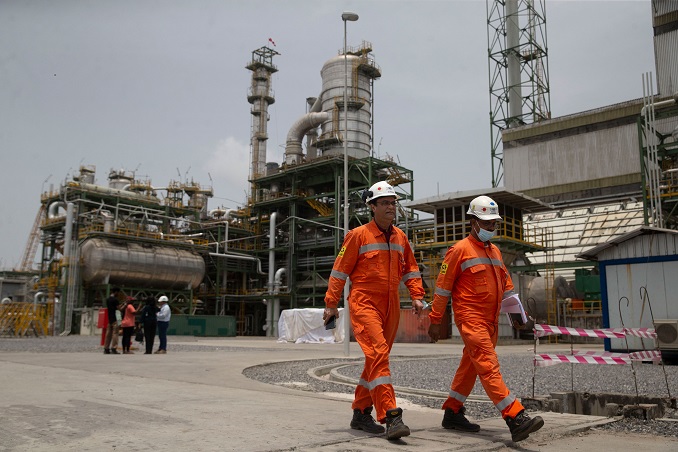Nigerian President Muhammadu Buhari has opened a $2.5 billion fertilizer plant with the goal of contributing to global supplies amid the impact of rising prices in the aftermath of the Russia-Ukraine conflict. When the Dangote Fertilizer Plant was opened in Lagos, Nigeria’s commercial capital, on Tuesday, the country’s leader said that the country “stands to gain a lot” from the plant’s output.
With the global fertilizer market thrown for a loop, Nigerian Central Bank Governor Godwin Emefiele said the plant’s opening is appropriate since it “has assisted Nigeria in solving a recurrent fertilizer problem.” Agriculture is crucial to Nigeria’s economy, accounting for 25.8% of the country’s 173 billion dollar GDP in 2021. Farmers, on the other hand, are sometimes limited by a lack of fertilizer and better seedlings.
Related Posts
According to Buhari, Nigeria expects “a boom” as a result of the new fertilizer factory, which has a capacity of 3 million metric tons per year. He said that fertilizer was now readily available in greater amounts and better quality than before. He said he anticipates the emergence of a new breed of agropreneurs who will add value to farming and make the country’s food self-sufficient, encouraging many Nigerians to “now take up agriculture as a business.” Fertilizer from the plant, which is in an industrial area of Lagos, will be exported to a number of countries, including the United States, Brazil, India, and Mexico, says Aliko Dangote, Africa’s richest man and the plant’s owner. This is because Russia’s ongoing war with Ukraine has cut off supplies.
High fertilizer costs are already threatening farmers around the world as a result of sanctions on Russia, a major global fertilizer exporter, where officials advised domestic producers to temporarily suspend exports in March. “With surplus capacity to export to other African markets and the rest of the world, the new factory would make Nigeria self-sufficient in fertilizer manufacturing,” Dangote added. Dangote said that the goal of the fertilizer plant’s work was to make fertilizer available in sufficient quantity and quality for the many farmers in Nigeria.

